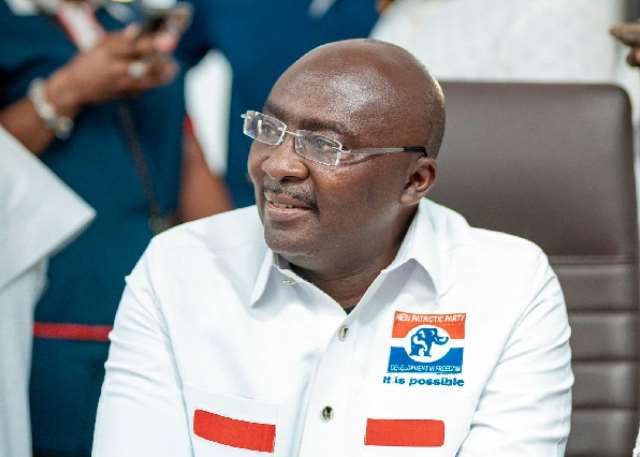The aftermath of the 2024 Ghanaian presidential election saw a flurry of political analysis and finger-pointing, with the defeated New Patriotic Party (NPP) grappling with the reality of their loss. Dr. Edward Omane Boamah, Defence Minister and former Director of Elections and IT for the victorious National Democratic Congress (NDC), publicly criticized Dr. Mahamudu Bawumia, the NPP’s presidential candidate, for allegedly refusing to accept accountability for the electoral defeat. In a pointed Facebook post, Dr. Omane Boamah accused Dr. Bawumia of deflecting blame onto others rather than acknowledging his own role in the NPP’s downfall, particularly citing Dr. Bawumia’s significant contribution to the economic policies that led to widespread hardship during the NPP’s tenure.
Dr. Omane Boamah’s critique centered on the argument that Dr. Bawumia, as a key figure in the previous NPP government, was intimately involved in shaping the economic strategies that ultimately contributed to the party’s loss. He contended that it was hypocritical for Dr. Bawumia to now distance himself from the consequences of these policies, effectively shirking responsibility for the economic difficulties that influenced the electorate’s decision. This public rebuke highlighted the deep political divisions and ongoing debate surrounding the NPP’s electoral performance, with Dr. Omane Boamah’s comments adding fuel to the fire.
The accusations leveled by Dr. Omane Boamah reflect a broader discussion within Ghanaian political circles about the factors that contributed to the NPP’s defeat. Many analysts and commentators pointed to the country’s economic struggles under the NPP government as a major factor influencing voter sentiment. Rising costs of living, unemployment, and perceived mismanagement of the economy likely eroded public trust in the NPP and contributed to their loss at the polls. Dr. Bawumia’s prominent role in shaping economic policy during this period made him a natural target for criticism from political opponents seeking to capitalize on the NPP’s vulnerabilities.
Dr. Bawumia’s perceived attempts to evade accountability further fueled the controversy and intensified the scrutiny of his role in the NPP’s decline. By allegedly blaming external factors and other individuals within the party, Dr. Bawumia risked alienating both his supporters and critics, further deepening the divisions within the NPP and hindering the party’s ability to regroup and analyze the reasons for their electoral setback. This perceived lack of introspection and self-criticism could potentially damage Dr. Bawumia’s political standing and complicate any future leadership aspirations within the NPP.
The public exchange between Dr. Omane Boamah and Dr. Bawumia, albeit indirectly through social media, underscores the highly charged political atmosphere in Ghana following the 2024 elections. The NDC, emboldened by their victory, sought to capitalize on the NPP’s internal struggles and solidify their position as the dominant political force. By publicly criticizing Dr. Bawumia, a prominent figure within the opposition, Dr. Omane Boamah aimed to further weaken the NPP and reinforce the narrative that the party was responsible for the country’s economic woes.
The fallout from the 2024 election highlighted the importance of accountability and self-reflection in politics. Dr. Omane Boamah’s accusations against Dr. Bawumia served as a reminder that political leaders must take responsibility for their actions and decisions, particularly when those decisions have significant consequences for the country and its citizens. The public debate surrounding the NPP’s defeat also underscored the importance of open and honest dialogue within political parties and the need to learn from past mistakes in order to move forward and regain public trust. The future of the NPP, and indeed the broader political landscape of Ghana, will likely depend on the ability of its leaders to acknowledge their shortcomings, address internal divisions, and offer viable solutions to the challenges facing the nation.


